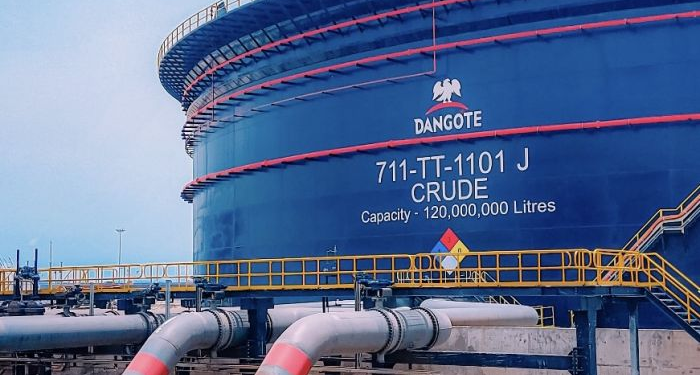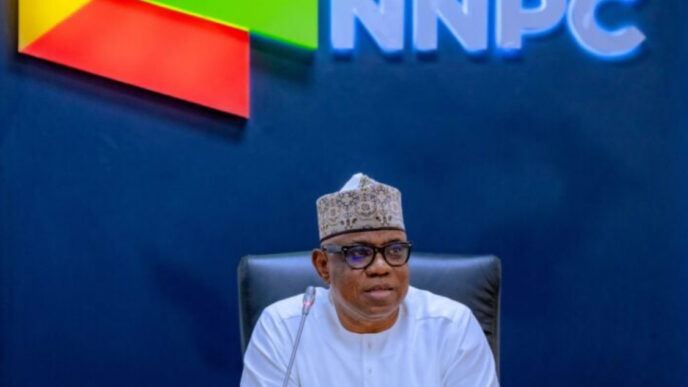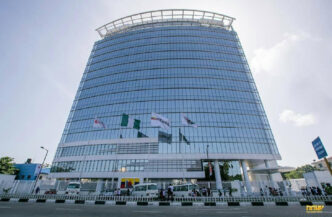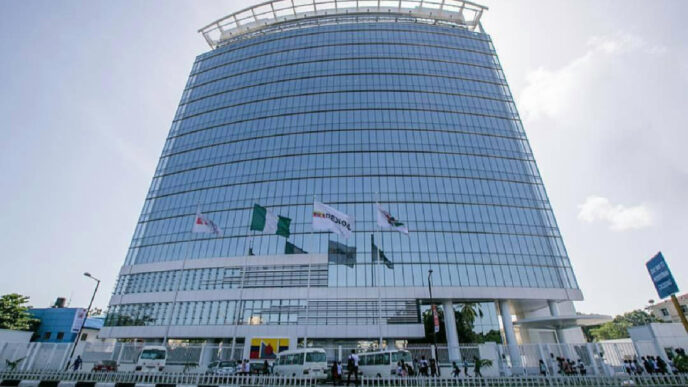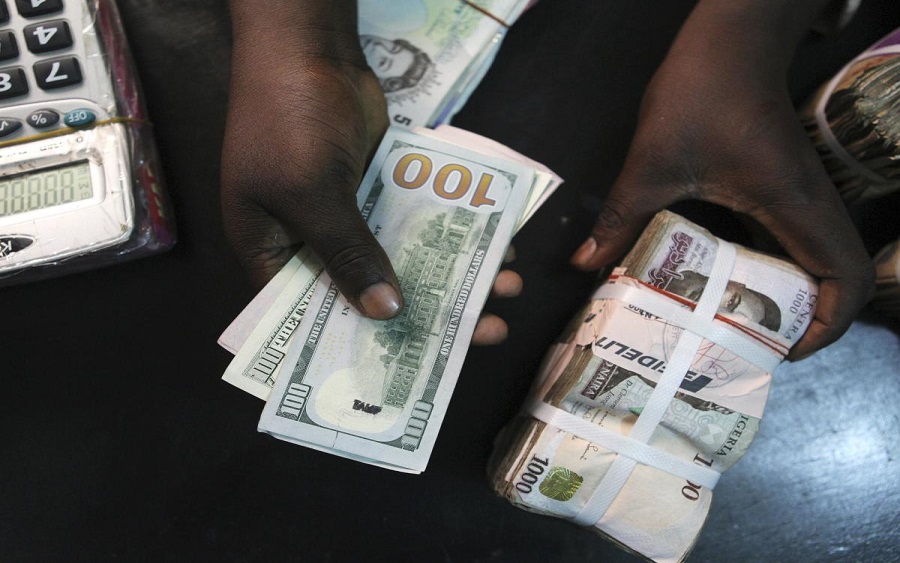The federal government has pledged full support for the Dangote Petroleum Refinery as it moves to expand its production capacity from 650,000 barrels per day (bpd) to 1.4 million bpd within the next three years.
Gatekeepers News reports that Heineken Lokpobiri, Minister of State for Petroleum Resources (Oil), gave the assurance on Monday in Lagos during his address at the 19th Africa Downstream Energy Week.
The minister described the refinery’s expansion as a monumental milestone for Africa’s energy independence, commending Aliko Dangote, founder of the Dangote Group, for his investment in regional energy security.
“I received the good news that the Dangote Refinery is expanding its capacity to 1.4 million barrels per day,” Lokpobiri said. “That will not just save Nigeria or West Africa, it will save Africa and even make an impact globally. The federal government will support him all the way to accomplishing that goal.”
Lokpobiri said the refinery’s growth validates the Tinubu administration’s policy direction, particularly the removal of fuel subsidies and the liberalisation of the downstream petroleum sector.
“The main reason President Tinubu announced the removal of fuel subsidy on his first day in office was because, with subsidies, the private sector could not grow,” he said. “With deregulation and liberalisation, there is now healthy competition. Prices are stable, products are more available and accessible, and the market is more efficient.”
The minister maintained that retaining fuel subsidies would have crippled Nigeria’s energy sector, noting that the reforms have attracted new investments and improved investor confidence.
Lokpobiri also underscored the continuing importance of hydrocarbons in the global energy mix despite the transition to cleaner sources.
“The world has realised that energy transition cannot happen in a vacuum. Even as we pursue renewables, the global economy still depends on oil and gas,” he said. “Without sufficient investment in hydrocarbons, there will be no financial capacity to support cleaner energy.”
Citing United Nations data, the minister said the world must invest about $540 billion annually in oil and gas recovery and infrastructure to meet rising energy demand, stressing that Africa, with its growing population of over 1.4 billion people, must not neglect the sector.
He added that Nigeria’s downstream industry is showing signs of stability following the subsidy removal, with improved product availability and stronger private participation.
“Subsidy was not sustainable; it discouraged investment and strained public finances. What we are seeing now is a more competitive and efficient downstream sector,” he said, praising President Bola Tinubu for making “bold and visionary” policy decisions.
Lokpobiri said ongoing reforms would further enhance energy security, promote domestic refining, and strengthen private sector participation across the value chain.
“We are no longer just talking about transition; we are building an energy mix that guarantees security for Africa. Every stakeholder must align with this vision to create the Africa we want,” he added.
Also speaking, Adetunji Oyebanji, chairman of the advisory board of OTL Africa Downstream Energy Week and former MEMAN chairman, called for policy consistency, innovation, and regional integration to advance Africa’s energy sustainability.
“Energy sustainability is not merely about preserving resources; it’s about ensuring that our growth today does not compromise the prosperity of tomorrow,” he said. “Africa must move beyond being a supplier of raw hydrocarbons to becoming a hub of innovation and value addition.”
Oyebanji stressed that Nigeria remains central to Africa’s energy transformation, thanks to its deregulated market, gas commercialisation drive, and expanding infrastructure base. He urged collaboration among industry players to ensure shared growth.
“Our capacity to grow beyond boundaries depends not only on how hard we compete but on how well we cooperate,” he added.

